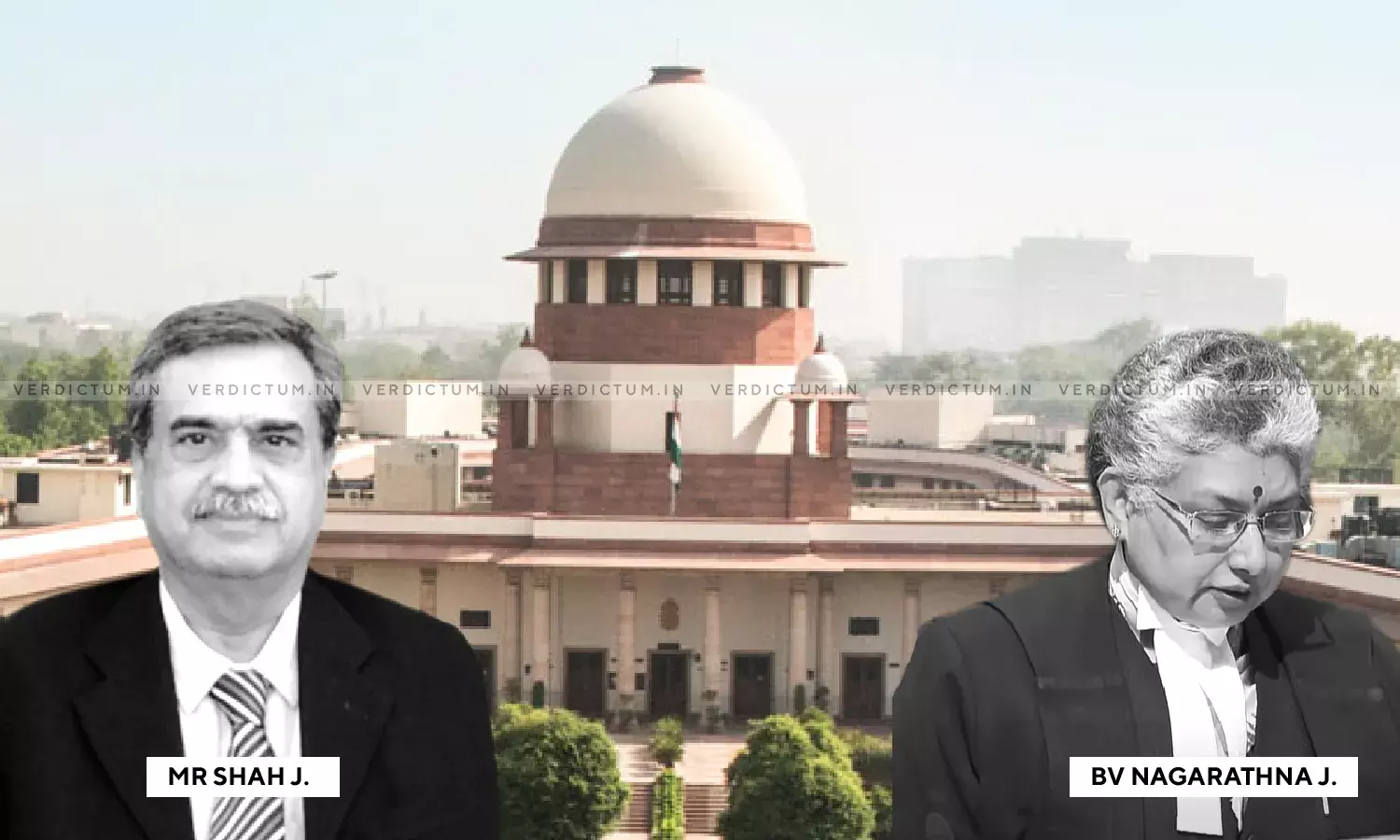Appeal As Whole Doesn't Abate Solely Due To Failure To Bring On Record Legal Representatives Of Some Deceased Parties - SC

A Supreme Court Bench of Justice MR Shah and Justice BV Nagarathna heard a case where it was considered whether the suit had abated due to the non-bringing of the legal representatives of the deceased parties.
The Bench observed that the Court must examine if the right to sue survives against the surviving Respondents and that an appeal as a whole cannot be treated as abated merely for failing to bring on record the legal representative of some of the Respondents who died during pendency.
The Court held -
"...in the instant case, when the original plaintiffs – two coowners instituted the suit with respect to the entire suit land jointly owned by the plaintiffs as well as defendants nos. 9 to 39 and when some of the defendants/respondents in appeal died, it can be said that estate is represented by others – more particularly the plaintiffs/heirs of the plaintiffs and it cannot be said that on not bringing the legal representatives of the some of the co-sharers – defendants – respondents in appeal, the appeal would abate as a whole."
Senior Advocate Shri Sanjay Poddar, Senior Advocate Shri Shyam Divan and Senior Advocate Shri Sunil Gupta appeared in this case.
In this case, the two Plaintiffs claimed to be the co-owners of the suit property and filed the suit before the Civil Court/Trial Court for declaration and permanent injunction. The suit was filed against the Development Authority, challenging the acquisition proceedings under the Land Acquisition Act, 1894.
The Trial Court decreed the suit. On appeal before the High Court, the High Court dismissed the entire appeal on the ground that the legal representatives of some of the Defendants who had died during the pendency of the appeal were not brought.
The Supreme Court referred to the decision taken in the case of State of Punjab vs Nathu Ram and in the case of Vennigalla Koteswaramma vs. Malampati Suryamba and Others, to opine that "the nature and extent of the abatement in a given case and the decision to be taken thereon will depend upon the facts of each case and, therefore, no exhaustive statement can be made either way and that the decision will ultimately depend upon the fact whether the decree obtained was a joint decree or a separate one. It is further observed that this question cannot and should not also be tested merely on the format of the decree under challenge or it being one or the manner in which it was dealt with before or by the Court which passed it".
The Court held that while considering whether the appeal has abated due to nonbringing the legal representatives of plaintiffs/defendants or not, the Court has to examine if the right to sue survives against the surviving Respondents.
The Supreme Court found that the High Court had mechanically and without holding any further enquiry - which was required to be conducted - dismissed the appeal. It was held that the High Court had failed to consider the relevant provisions of CPC, namely Order 22 Rule 1 to 11.
To that end, the Supreme Court directed that the High Court must consider the appeal in accordance with law on its own merits, and consider and hold an enquiry "whether, on the death of some of the respondents in the appeal (defendants in suit) the right to sue against the remaining respondents – original plaintiffs/the remaining original defendants would survive or not including the fact that the estate is being represented by surviving original plaintiffs/heirs of the original plaintiffs/surviving defendants having a bearing on the enquiry to be held."
There was no order as to costs.
Click here to read/download the Judgment

